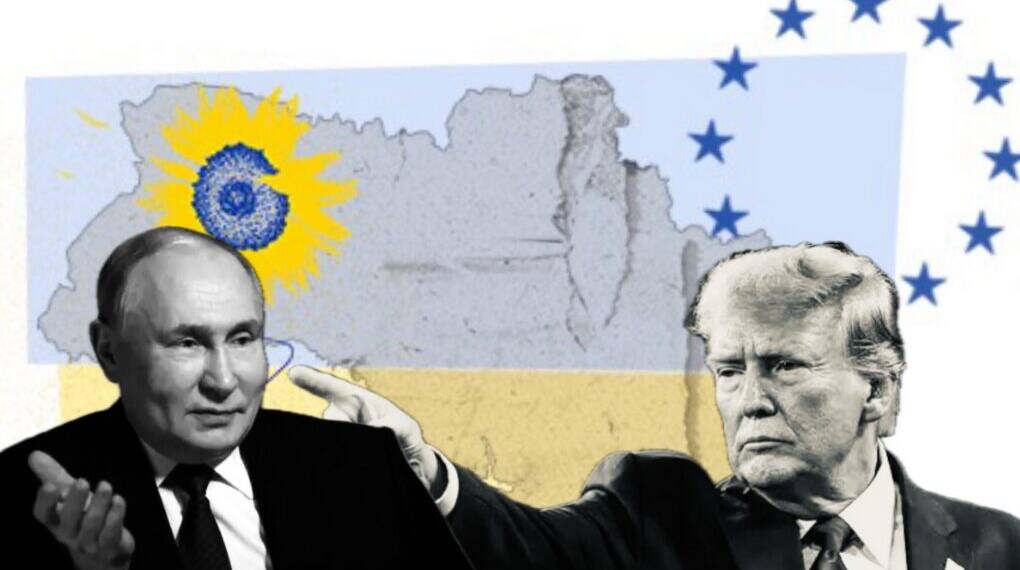As the war in Ukraine stretches on, speculation has swirled about the future direction of U.S. foreign policy under Donald Trump. Recent developments indicate a clear stance from the Trump administration: the United States will not pursue a peace deal with Russia that excludes Ukrainian or European consent. Trump, describing the conflict as a “bloodbath” with significant risks of escalation, is advocating for a ceasefire in the ongoing war that started three and a half years ago. He aims to enhance his reputation as a global peacemaker and position himself as a contender for the Nobel Peace Prize.
For Putin, the upcoming summit represents a major success, allowing him to claim that Western efforts to isolate Russia have failed and that Moscow has regained its status as a key player in international diplomacy. This meeting, the first between American and Russian leaders since 2021, is scheduled to commence at 11 a.m. Alaska time.
U.S. Assurance to Ukraine and Europe
A pivotal moment came during a recent phone conversation between J.D. Vance, a senior U.S. official, and Ukrainian President Volodymyr Zelensky. Sources within the German federal government have confirmed that Vance provided strong assurances—echoed by President Trump and other administration members present at an online meeting—that the United States has no intention of entering negotiations with Russia to end the war without Ukraine or its European allies at the table.
This unequivocal message was designed to address growing concerns in Kyiv and European capitals that Washington might try to force a settlement as a shortcut to ending the war. Instead, U.S. policymakers reassured allies that all future diplomatic efforts would be coordinated closely with Ukraine and Europe—a sharp contrast to suggestions that a top-down American-Russian peace plan could be imposed.
Diplomatic Priorities Underlined
According to accounts of the meeting, the Trump team—composed of Vance, President Trump, and other high-level officials—demonstrated “great interest” in the negotiation issues identified as crucial by Ukraine and its European partners. Among these core topics are:
The restoration of Ukraine’s territorial integrity,
Security guarantees for Ukraine should a peace agreement emerge,
The long-term stability and security architecture for Eastern Europe.
This interest signals a U.S. foreign policy focused not merely on ending hostilities, but on ensuring any agreement addresses Europe’s and Ukraine’s fundamental concerns.
Implications for U.S.-Russian Negotiations
Historically, skeptics in Kyiv and Europe have feared that external powers might strike a deal with Moscow over their heads, prioritizing a quick geopolitical settlement over the security and sovereignty of Ukraine. The latest commitments from the Trump administration seek to allay these fears, underscoring a multilateral approach to peace that should foster trust among allies.
By asserting that U.S. strategy is not to “hold negotiations with Russia to end the war without Ukraine or Europe,” American officials bolster Ukraine’s diplomatic leverage and reassure partners in Berlin, Paris, Warsaw, and Brussels that their voices remain central to any resolution of the conflict.
Reactions from Within Europe
European diplomats have responded positively to these reassurances, viewing them as essential for maintaining unity in the Western response to Russian aggression. European leaders had quietly communicated their anxieties regarding a potential Washington-Moscow bargain; now, with direct guarantees from senior U.S. figures, those concerns are temporarily allayed.
This approach marks both a continuity and a nuance in U.S. engagement with the Ukraine crisis: while actively seeking a diplomatic end to the war, the United States is careful not to undermine the agency of Ukraine or its European partners. The message backed by Vance and by extension the Trump leadership is plain—peace in Ukraine cannot be dictated from the outside.
The Trump administration’s recent statements represent a critical commitment to allied unity and diplomatic integrity. By rejecting the notion of an imposed peace and centering Ukraine and Europe in all negotiations, Washington aims to strengthen the Western coalition and reaffirm its support for Ukrainian sovereignty. As the path toward peace remains perilous and uncertain, U.S. clarity on this issue is deeply consequential for the region, signaling that only a consensus-driven accord will be pursued.








